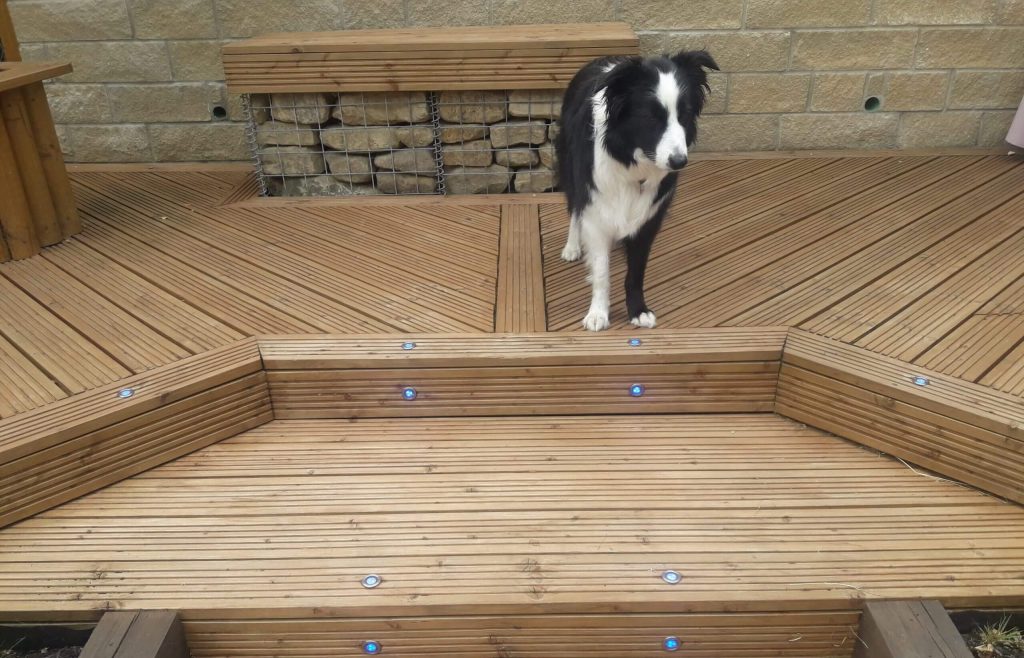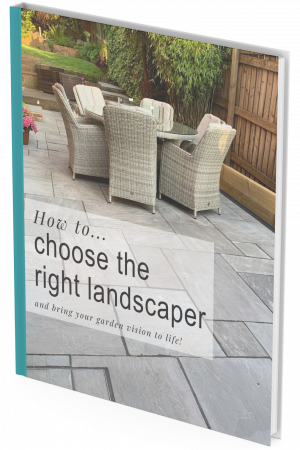We love our gardens but we love our pets more! Gardens are a haven for relaxation and entertainment. As pet owners ourselves, we know it’s great to be able to get out and enjoy the outdoors with our beloved furry pals. However, gardens can pose a number of potential risks to our pets. To ensure a safe and enjoyable environment for all, it’s important to take a few precautions. In this blog, Gardens for Pets: How to Keep Your Furry Friends Safe Outdoors, we’ll explore some essential tips for creating a pet-friendly garden, specifically tailored to dogs, rabbits, and cats.
Choose Pet-Safe Plants
While many plants add beauty and vibrancy to our gardens, some are toxic to pets if they decide to have a nibble. Dogs, rabbits, and cats have different tastes and dietary habits, so it’s important to research and select plants that are safe for each animal.
- For dogs, consider plants like sunflowers, roses, pansies, and freesias.
- Rabbits thrive on leafy greens like parsley, mint, and coriander.
- Cats, on the other hand, are sensitive to certain plants such as lilies, so it’s best to avoid them altogether.
It’s a good idea to create areas with appropriate plants for each pet to ensure their safety. They do like to explore!
Secure Your Garden Boundaries
Different pets have different levels of curiosity and agility. Dogs are known to be skilled escape artists, so it’s important to reinforce your garden boundaries by regularly checking for gaps or weak points in fences, hedges, or gates. At least one of our four would be out daily if we didn’t have a suitable fence and two gates!
Consider using sturdy pet-friendly barriers or fencing solutions, especially for smaller dog breeds who might get under a gate, and rabbits that are prone to digging. Cats are climbers, so install cat-proof fencing or use enclosures to keep them safely contained within your garden.
Avoid Harmful Chemicals
Pets can be sensitive to weed killers and other chemicals used in gardens. Dogs, in particular, have eyes bigger than their bellies and tend to explore their surroundings by sniffing and tasting objects.
Opt for pet-safe alternatives or natural remedies to maintain your garden. When using chemicals, follow the instructions carefully and keep your pets away from treated areas until it’s safe for them to re-enter. Always store harmless chemicals in a secure location that your pets can’t get to.
Create Shaded Areas in Your Garden for Pets
Like us, dogs, rabbits, and cats all need protection from extreme temperatures and sunlight. Make sure there are some shaded areas in your garden where your pets can chill out during hot summer days. Trees, gazebos, or pet-friendly shelters can provide adequate shade.
Dogs may also appreciate a shallow pool or water feature to cool off in, while rabbits can benefit from a hutch or sheltered area to rest in. Cats enjoy elevated perches or shady spots under trees or bushes. A constant supply of fresh, clean water should always be available too.
Store Tools and Equipment Safely
Gardening equipment, including sharp tools like shears or pruners, can be a risk to curious pets. Store them away in a securely locked shed or garage along with chemicals such as weedkillers, fertilizers, or cleaning products for your pool or hot tub. These should be kept in a safe place, following the manufacturer’s instructions of course. i.e. most hot tub chemicals shouldn’t be kept outside but we see this happening a lot.

For Dogs
Consider a dog-friendly play area
Dogs love to play, so having their own play area within your garden can keep them entertained safely for hours. Install pet-friendly toys, such as chew toys or interactive puzzles for them. You could also set up an obstacle course for them to explore. Ice cubes can provide lots of fun for dogs on a hot day too. If you’ve never seen a dog chase an ice cube across the patio, you’re missing out!
Be mindful of potential dangers for dogs
Dogs are active creatures that may be prone to certain risks in the garden. Remove any sharp objects, toxic plants, or small items that could be swallowed. Be cautious with ponds or water features, as some dogs may be prone to jumping in and risking drowning. They enjoy the water but need to be supervised like children. Regularly check for any holes or gaps in fences that could allow dogs to escape.
For Bunnies
Provide a safe haven for rabbits
Rabbits require spacious accommodation to keep them safe in the garden. Ensure they have a secure hutch or hutch-like structure with solid flooring to prevent digging and a secure door to keep them inside. Rabbits should always have access to the outdoors which can be provided safely in the form of a run, or enclosure, ideally attached to their hutch. Providing them with a safe space to hop around and eat grass is essential for their well-being.
Protect rabbits from predators
Rabbits are prey animals and can be vulnerable to predators. Ensure that their hutch is securely built with sturdy materials that cannot be easily accessed by predators like foxes. Avoid placing the hutch near bushes or dense vegetation that would provide a hiding spot for potential threats. Consider installing wire mesh beneath the hutch to prevent predators from digging their way in.
For Cats
Cater to cat-friendly needs
Cats are known for their curiosity and agility. Create vertical spaces in your garden to satisfy their climbing instincts. Install cat-friendly structures like scratching posts, cat trees, or elevated perches. Cats also appreciate hiding spots, so provide dense foliage or shrubs where they can be ‘under cover’ and observe their surroundings. Consider planting catnip or cat grass, which can attract and entertain your feline friends.
Create safe spaces for cats
Cats love to explore and may be prone to roaming. Ensure your garden is escape-proof by adding cat-proof fencing or enclosures. Check for gaps and weak spots that may allow them to sneak through. Provide comfortable outdoor cat furniture, such as weatherproof beds or cosy shelters, where they can relax.
How Kettlewell Groundworks can help create a pet-friendly garden
Creating a pet-friendly garden requires a balance. It needs to be a great space for you, but also functional, and safe for your furry friends. By following these essential tips tailored to dogs, rabbits, and cats, you can help your pets enjoy the outdoors while minimizing potential hazards. Remember to make regular checks to maintain safety and security for you all. With proper precautions in place, your garden will become a delightful oasis for both you and your beloved companions.
If you’re worried that your fencing isn’t up to scratch, you’d like to create some shade in the form of a gazebo or similar, or you’d like a new patio where you can play with your pets, Kettlewell Groundworks can help. We have four dogs and two rabbits of our own so we know the importance of keeping them safe. Give us a call on 01274 981995 or book an appointment online at www.kettlewellgroundworks.co.uk/contactus and we can have a chat about pet-proofing your garden. You can also meet our pets over on our Instagram page! 😊
Note: While this blog, Gardens for Pets: How to Keep Your Furry Friends Safe Outdoors, provides general guidelines, it’s important to consult with your veterinarian for specific advice tailored to your pet’s individual needs and any unique risks in your area.


